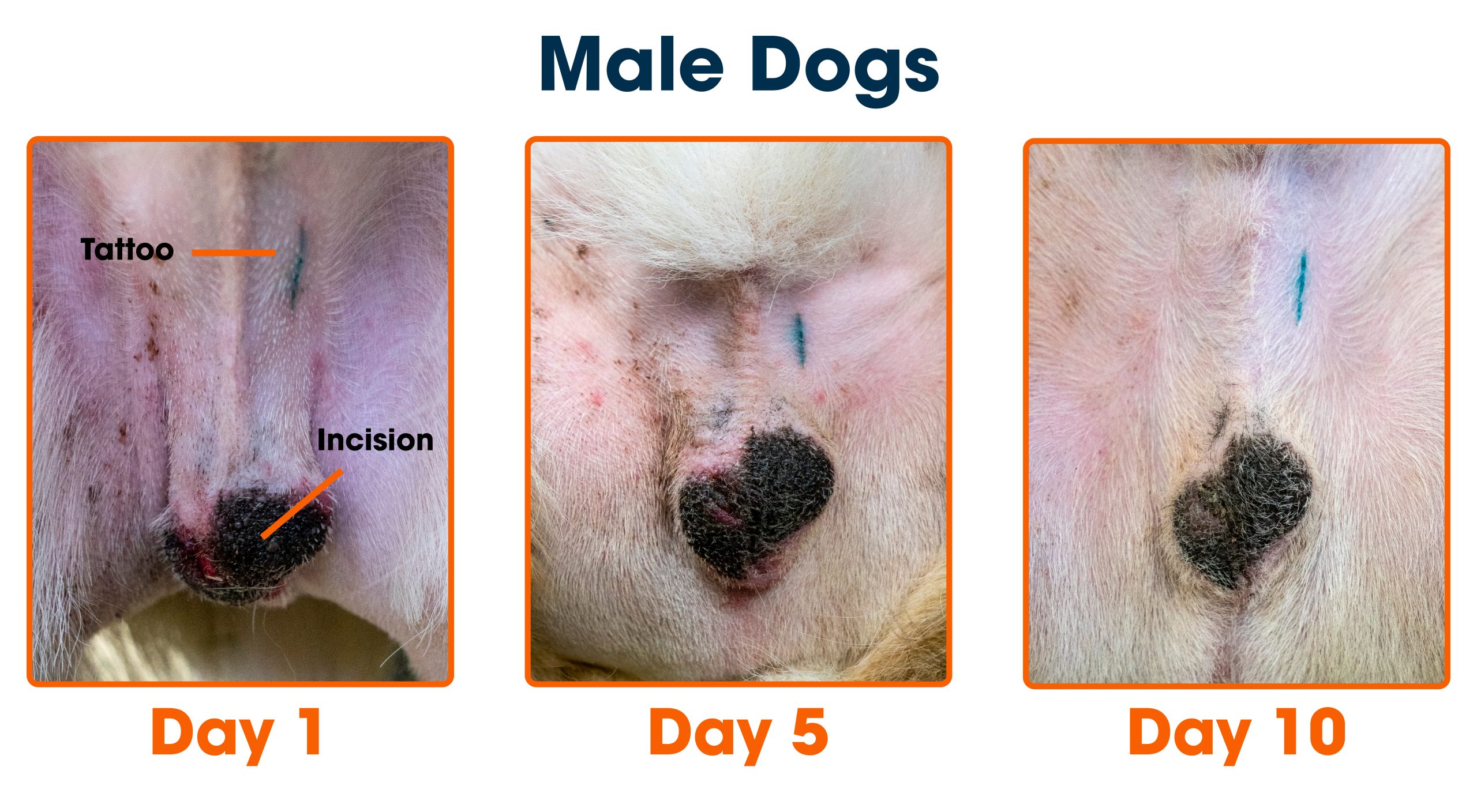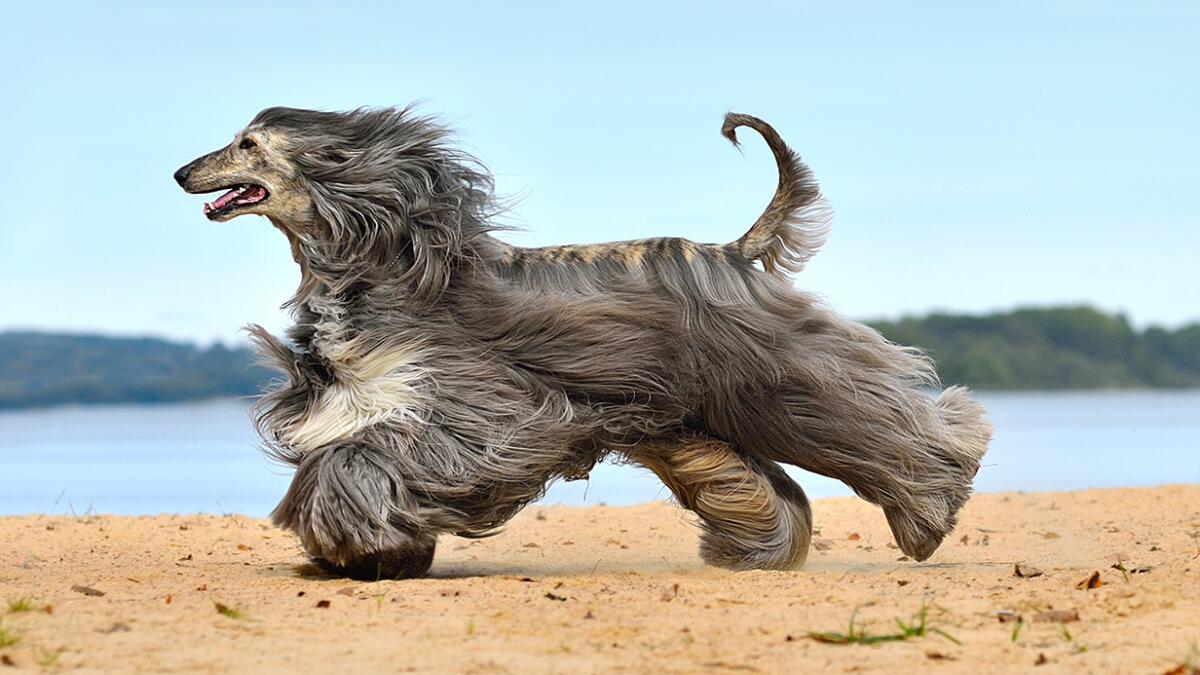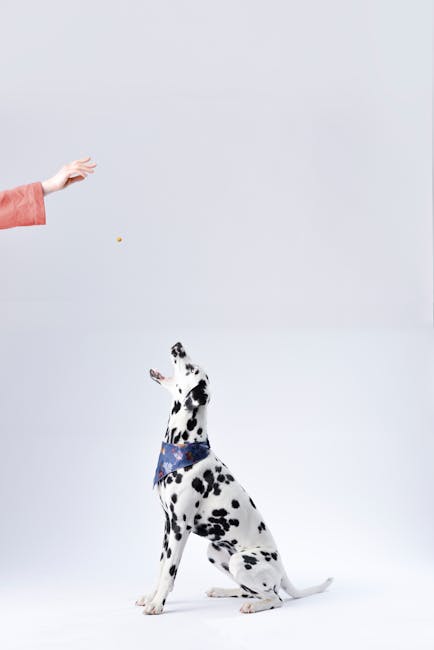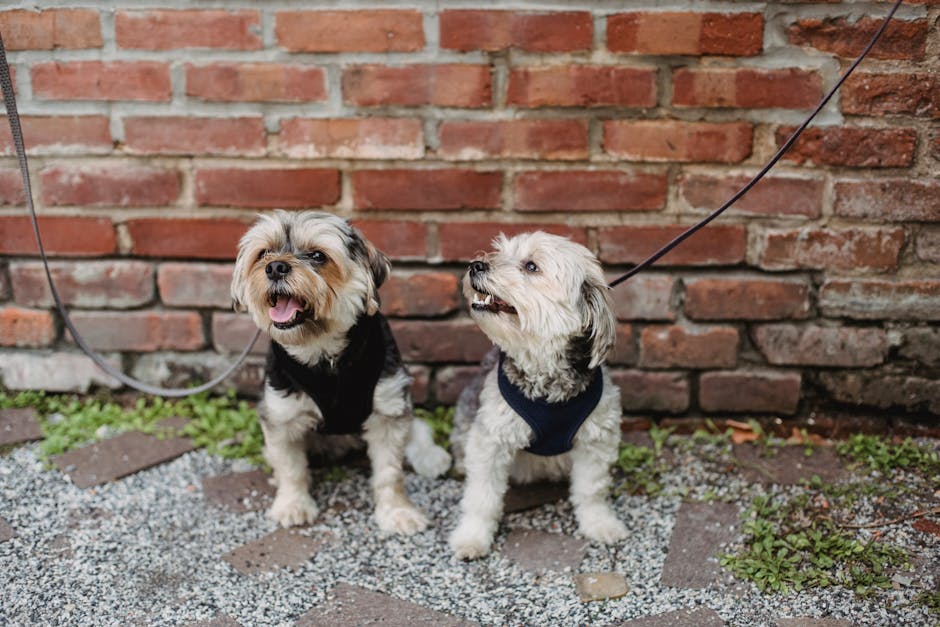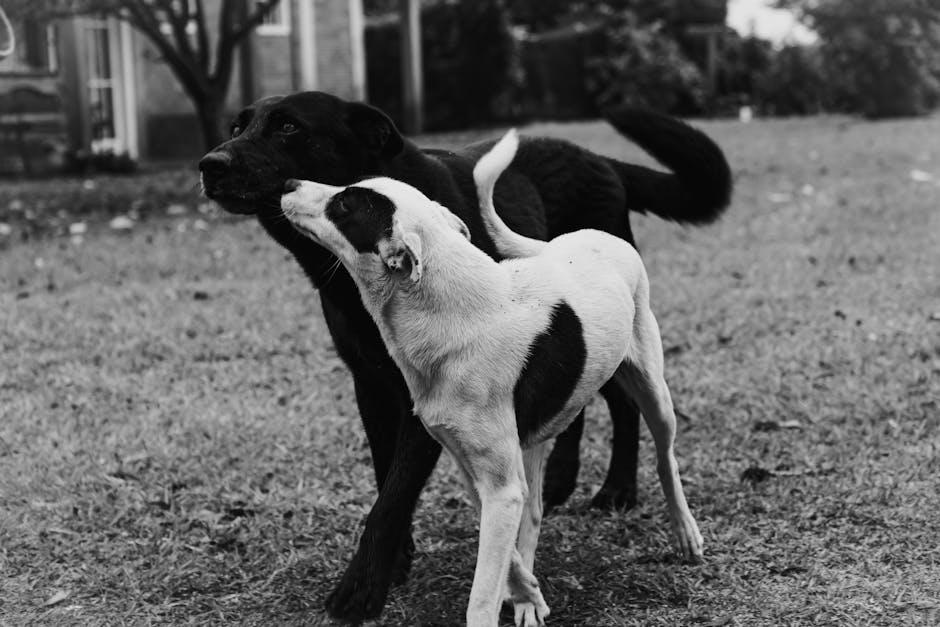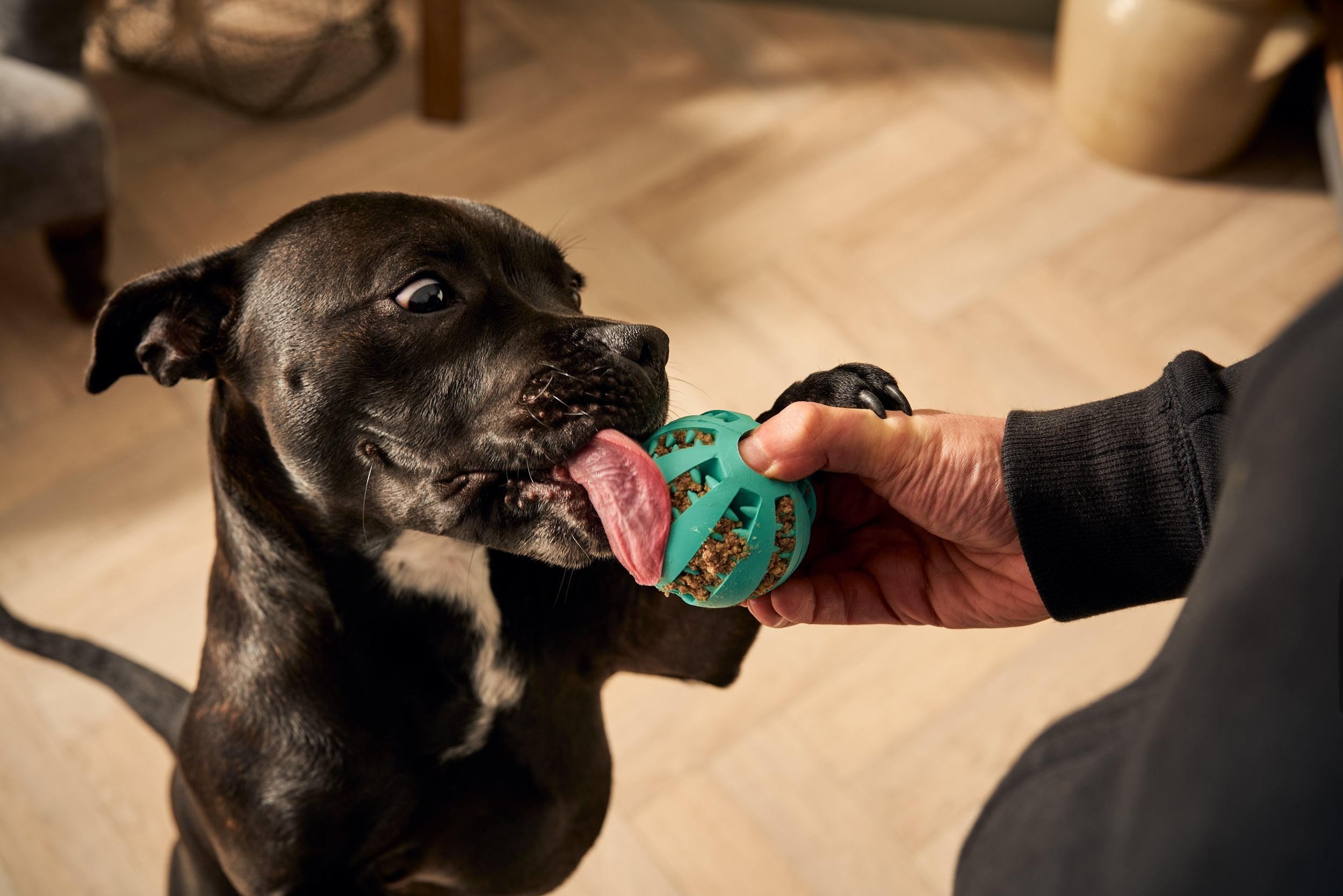Is your dog’s playful nip turning into a painful bite? You’re not alone.
Many dog owners struggle with play biting, and it can quickly become frustrating or even unsafe. But don’t worry—there are simple, effective ways to teach your dog to play gently. By understanding why your dog bites and learning the right steps to stop it, you can enjoy fun, safe playtime without the fear of getting hurt.
Keep reading to discover how you can turn those sharp little bites into happy, harmless play.
Why Dogs Play Bite
Dogs often use their mouths to explore the world. Play biting is a common way for them to interact. Understanding why dogs play bite helps in teaching them better behavior. It is a natural part of how dogs communicate and learn. Recognizing the reasons behind play biting leads to effective training.
Natural Behavior
Play biting is a normal part of dog behavior. Puppies and adult dogs use their mouths during play. It helps them learn bite control and social skills. Dogs use gentle bites to show they want to play. This behavior is common in wild and domestic dogs alike.
Puppy Teething
Puppies bite more when they are teething. Their gums feel sore and itchy. Chewing and biting help relieve this discomfort. Puppies often bite toys, hands, or clothing. This stage lasts a few months but is intense.
Seeking Attention
Dogs bite to get your attention. They learn biting makes you react quickly. Sometimes, they bite to start play or get petting. This is especially true for energetic or bored dogs. Teaching gentle play helps reduce attention-seeking bites.

Credit: www.youtube.com
Recognizing Play Biting Signs
Recognizing play biting signs helps you stop it early. Dogs use play biting to communicate and explore. Understanding these signs can keep play fun and safe. Watch your dog’s signals to know when biting is just play. This knowledge helps you respond calmly and correctly.
Body Language
Look for relaxed body posture and wagging tail. Playful dogs often have loose movements and open mouths. Ears may be up or slightly back without tension. Eyes might look soft or squinty, not hard or fixed. Play bowing, with front legs down and rear up, shows play intent.
Bite Pressure Levels
Play bites are gentle and usually do not hurt. Dogs test your reaction with soft mouth pressure. If pressure increases, it may signal frustration or overstimulation. Watch for quick release after the bite. Hard or piercing bites need immediate attention and correction.
Common Triggers
Excitement or high energy often leads to play biting. Roughhousing or tugging games can encourage mouthing. Lack of exercise or mental stimulation may increase biting. Puppies use biting to explore new things and learn limits. Identifying these triggers helps reduce play biting incidents.
Setting Boundaries Early
Setting boundaries early helps your dog learn what is okay and what is not. Puppies explore the world with their mouths. Play biting is normal, but it must stop before it becomes a habit. Teaching limits from the start makes training easier and safer for both you and your dog.
Consistent Rules
Consistency is key to stopping play biting. Use the same rules every day. If biting happens, respond with a firm “No” or a gentle but clear “Ouch.” Avoid yelling or harsh punishment. Dogs learn best when they understand what behavior is expected.
Everyone in the family should follow the same rules. Mixed signals confuse your dog. Consistent responses help your dog know that biting ends playtime immediately. This teaches the dog to control its bite strength.
Safe Play Alternatives
Give your dog safe options to bite and chew. Offer toys made for chewing instead of your hands or clothes. Redirect biting to these toys whenever your dog tries to nip.
- Use chew toys during play sessions.
- Introduce tug ropes for gentle play.
- Swap your hand with a toy quickly if biting starts.
Safe alternatives satisfy your dog’s need to bite. They also keep your fingers safe. Teaching this early builds good habits that last a lifetime.

Credit: pupford.com
Training Techniques To Reduce Biting
Training techniques play a key role in reducing a dog’s play biting. Consistent and patient practice helps the dog learn appropriate behavior. These techniques focus on encouraging good habits and discouraging biting gently. Using clear signals and rewards makes training effective and enjoyable for both dog and owner.
Positive Reinforcement
Positive reinforcement means rewarding good behavior to encourage it. Praise your dog with treats or affection when it plays gently. This shows the dog what behavior you want. Avoid punishing the dog for biting, as it can cause fear or confusion.
Use rewards immediately after the dog stops biting. This helps the dog connect the reward with the good action. Consistent rewards build a habit of gentle play over time.
Redirecting Biting
Redirecting biting means giving the dog something else to bite. Offer chew toys or bones when the dog tries to bite your hands. This teaches the dog to focus biting on safe items.
Keep a variety of toys available during playtime. Switch the dog’s attention to toys instead of your skin or clothes. This reduces unwanted biting and keeps play fun.
Using Commands
Commands help the dog understand when to stop biting. Teach simple words like “no,” “stop,” or “gentle.” Use a firm but calm voice to say the command during play.
Practice commands regularly and reward the dog when it obeys. This strengthens communication and helps control biting. Clear commands guide the dog toward good behavior quickly.
Tools To Aid Training
Training a dog to stop play biting can be easier with the right tools. These tools help redirect your dog’s energy and teach gentle behavior. Choosing effective tools makes training smoother and less stressful for both of you.
Chew Toys
Chew toys give dogs a safe outlet for biting urges. They help satisfy your dog’s need to chew while protecting your hands. Offer different textures to find what your dog likes best. Use chew toys during playtime to keep your dog busy and calm.
- Choose durable toys made for strong chewers.
- Rotate toys to keep your dog interested.
- Reward your dog with praise for chewing toys instead of hands.
Bite Deterrent Sprays
Bite deterrent sprays discourage dogs from biting skin. They taste unpleasant but are safe and non-toxic. Apply the spray on your hands or clothing before play sessions. The bad taste teaches your dog to avoid biting you.
- Use sprays designed specifically for dogs.
- Reapply after washing hands or playtime.
- Combine with training commands for better results.
Handling Play Biting In Adult Dogs
Handling play biting in adult dogs requires a calm and consistent approach. Unlike puppies, adult dogs have established habits, so changing their behavior can take time. You need to stay patient and understand that your dog is not trying to hurt you but is communicating through play.
Patience And Persistence
Changing biting behavior doesn’t happen overnight. You must consistently redirect your dog’s biting to appropriate toys every time they start to nip at your hands or clothes. If your dog bites too hard, immediately stop playing and walk away for a moment to show that biting ends the fun.
It’s easy to get frustrated, but remember that your calm response teaches your dog what is acceptable. Keep training sessions short but frequent, and reward gentle play with praise or treats. Have you noticed if your dog bites more when excited or anxious? Identifying triggers helps you manage situations better.
Professional Help
If your dog’s play biting continues despite your efforts, seeking professional help can make a big difference. Trainers or behaviorists can observe your dog’s behavior closely and offer tailored strategies that suit your dog’s personality and history.
Sometimes, underlying issues like fear or lack of socialization drive biting behavior in adult dogs. Experts can help you address these root causes effectively. Would you be willing to invest time and resources in professional guidance to improve your dog’s behavior?
Preventing Future Biting Habits
Stopping a dog from play biting is just the beginning. To ensure your dog stays gentle, you need to prevent future biting habits before they start. This means focusing on activities and routines that keep your dog calm, happy, and well-behaved every day.
Regular Exercise
Dogs often bite during play because they have too much energy. Giving your dog regular exercise helps burn off that excess energy and reduces the urge to bite. Walks, runs, or playtime in the yard can make a huge difference.
I noticed that after a good 30-minute walk, my dog was much calmer and less likely to nip. How much exercise does your dog need? It depends on their breed and age, but aim for at least 30 minutes daily.
Socialization
Meeting other dogs and people teaches your dog proper behavior. Socialization helps them learn boundaries and reduces anxiety that can lead to biting. Arrange playdates or visits to dog parks where your dog can interact safely.
My dog used to bite out of excitement during playdates. Over time, meeting different dogs taught him to control his mouth. Could your dog benefit from more varied social experiences?
Mental Stimulation
Bored dogs often use their mouths to entertain themselves. Providing mental stimulation keeps their brains busy and stops biting out of boredom. Puzzle toys, training sessions, and scent games are great ways to engage your dog.
Try giving your dog a new challenge every day. I find that a simple treat-dispensing toy can keep my dog occupied and less likely to bite. What new games can you introduce to keep your dog mentally sharp?

Credit: www.facebook.com
Frequently Asked Questions
How Can I Stop My Dog From Play Biting?
To stop play biting, redirect your dog’s attention using toys. Consistently reward gentle play and ignore biting behavior. Teach commands like “leave it” and “gentle. ” Consistency and patience are key to changing this behavior. Socializing your dog can also help reduce play biting tendencies.
Why Do Dogs Engage In Play Biting?
Dogs play bite as a form of communication and exploration. It mimics their natural play and social interactions. Puppies often bite while teething or learning about their environment. Understanding their behavior helps in addressing it. Redirect their energy to toys or activities to manage play biting.
Is Play Biting Normal For Puppies?
Yes, play biting is normal for puppies. It is part of their development and social skills learning. They explore through their mouths and mimic play fighting. Redirecting their behavior and teaching gentle play can reduce excessive biting. Consistent training helps them understand acceptable behavior.
What Toys Help Prevent Play Biting?
Toys that promote chewing and mental stimulation help prevent play biting. Choose durable toys like rubber chew toys or interactive puzzle toys. These keep your dog engaged and redirect their biting energy. Regularly rotate toys to maintain interest and encourage appropriate chewing habits.
Conclusion
Stopping your dog from play biting takes patience and consistency. Use gentle corrections and offer toys to chew. Praise good behavior to encourage calm play. Avoid rough games that excite biting. Remember, your dog learns best with kind guidance. Practice daily and stay calm during training.
Soon, your dog will play nicely and safely. Enjoy the bond that grows from good habits. Keep training simple and fun for both of you.

